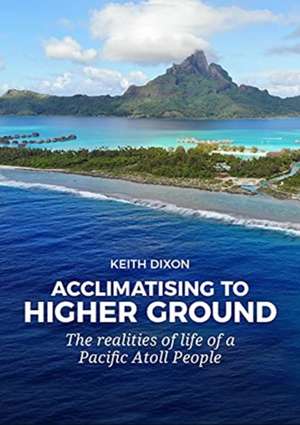Acclimatising to higher ground
Autor Keith Dixonen Limba Engleză Paperback – 25 oct 2021
Preț: 309.83 lei
Nou
Puncte Express: 465
Preț estimativ în valută:
59.30€ • 64.44$ • 49.85£
59.30€ • 64.44$ • 49.85£
Carte tipărită la comandă
Livrare economică 17-23 aprilie
Preluare comenzi: 021 569.72.76
Specificații
ISBN-13: 9789464260298
ISBN-10: 9464260297
Pagini: 256
Dimensiuni: 182 x 257 x 17 mm
Greutate: 0.66 kg
Editura: Sidestone Press
ISBN-10: 9464260297
Pagini: 256
Dimensiuni: 182 x 257 x 17 mm
Greutate: 0.66 kg
Editura: Sidestone Press
Notă biografică
Keith Dixon¿s academic outputs have mainly concerned organisational change, social responsibility, governments, universities, hospitals, mining corporations and accountant education. He has been at his present workplace, the University of Canterbury | Te Whare W¿nanga o Waitaha since 2007. Keith¿s academic and accounting career has included spells in several locations including the English Midlands, Port Moresby, Tarawa, Buckinghamshire and both main islands of New Zealand. He has worked for organisations as diverse as Wolverhampton, Cannock and Nottinghamshire Councils, the UK Government Department for International Development, the Institute of Public Administration of Papua New Guinea, Kiribati Institute of Technology, Kiribati Centre of the University of the South Pacific, and Massey, Keele and the Open Universities.
